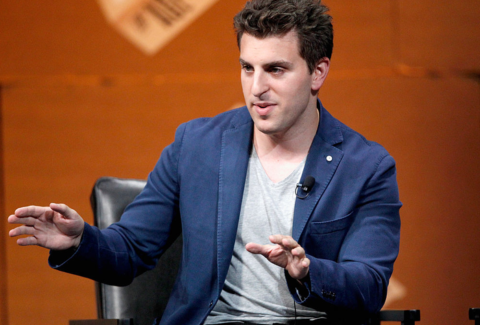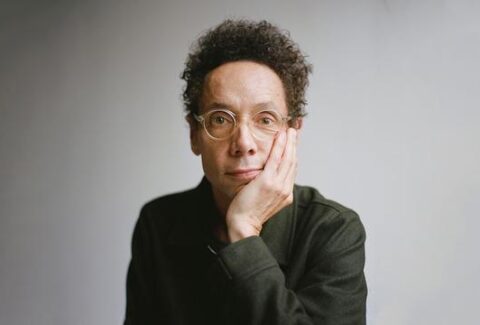Why smart empathy > sharp IQ
Welcome to the thirty-first edition of ‘3-2-1 by Story Rules‘.
A newsletter recommending good examples of storytelling across:
- 3 tweets
- 2 articles, and
- 1 long-form content piece
Let’s dive in.
🐦 3 Tweets of the week

It can take someone several decades to become an ‘overnight success’.

This is so funny – “some kind of tower” 😀
(Brace yourself, long tweet coming up!)

While I’m not a Notion user, I am aware of the trap of falling for visual aesthetics. Don’t let your quest for arresting visuals distract you from the need to have a clear, compelling narrative.
📄 2 Articles of the week
a. Intelligent vs. Smart by Morgan Housel (Hat tip: Gopal Sarma)
Morgan makes a fervent case for the importance of smart empathy versus sheer IQ. Here’s his key point
I’d define intelligence vs. smart like this: Intelligent people understand technical details, smart people understand emotional details. Or maybe:
Intelligence: Good memory, logic, math skills, test-taking ability, rule-following.
Smart: High degree of empathy, bullshit detection, organization, communication skills, persuasion, social awareness, understanding the consequences of your actions.
Both are important. But there’s a critical difference in how each is valued.
Schools are good at teaching and measuring intelligence, so that’s what people tend to value and aspire to. But in almost any field, smarts is what gets rewarded long term.
The below part is music to my ears… (but I have a problem with it):
Hedge fund manager Kyle Bass summed this up well, saying: “It’s easy to maintain conviction. It’s harder to maintain investors.” The most successful investors tend to be expert communicators, because you have to compel your investors to stick with you during inevitable times of underperformance. Buffett. Sequoia. Even Vanguard; they are so skilled – intentionally so – at delivering an effective message beyond the numbers.
Warren Buffett – amazing writer.
Charlie Munger – amazing writer.
Seth Klarman – amazing writer.
John Bogle – amazing writer.
Joel Greenblatt – amazing writer.
Howard Marks – amazing writer.
I don’t think this is a coincidence. These investors’ ability to write let them effectively tell their story, set expectations, and reassure investors. That made their investors more likely to stick around when times got rocky.
It’s hard to teach that. Storytelling is a soft, emotional skill. It’s not found in intelligence. It’s found in smarts.
First of all, thank you Morgan for extolling the virtues of storytelling as a skill.
But my problem? Morgan is presenting the names of select successful investors as incontrovertible evidence of the (implied) statement that: To be an effective investor, you have to be a great communicator.
I don’t know the world of investing, but I’m sure it may be possible to find successful investors who are not great at writing.
Maybe I’m being too harsh here. After all, Morgan does say in the para: “The most successful investors tend to be expert communicators…”. That statement I can agree with!
b. How to Find Good Information by Gurvinder Bhogal
I loved this piece by Gurvinder (a modern-day thinker and philosopher) on how to enhance your information diet. Just like we need to eat healthy and avoid junk food, we also need to consume ‘healthy’ thought-provoking information and avoid (too much) junk info.
I love the analogy of fishing and hunting that Gurvinder uses:
There are two ways people obtain info online: fishing and hunting.
Fishing is passive. You don’t know what you want to know and just casually scan the screen till something catches your interest. Examples include scrolling social media, browsing news websites, and idly refreshing the YouTube home page.
Hunting, on the other hand, is an active process. You have a clear idea what you want to know about and consciously search for it. Basically, any time you’re researching something, you’re hunting.
We fish to find questions to ask, and we hunt to find answers. We fish to widen knowledge, and we hunt to deepen it
In the rest of the article, Gurvinder shares some of the information sources that he relies upon, especially for the ‘fishing’ part of his research.
📄 1 long-form read of the week
a. The burdens of being Rohit Sharma by Sidharth Monga
This fascinating long-form piece is a beautiful, empathetic write-up of Rohit Sharma’s (the current Indian cricket team captain) cricketing journey.
I absolutely loved the beginning, which uses the lovely phrase: “not the underdog, yet the underdog” (context: Rohit Sharma was hailed as being a natural genius at batting and frequently copped harsh criticism of ‘wasting his potential’ during his younger playing days):
“The gravest harm comes to gifted people when the prevalent misunderstanding hoisted upon them is that giftedness is an unmitigated advantage,” writes Celi Trépanier, an American educator who decided to become an advocate for gifted kids after tiring of how schools misunderstood them. She often speaks about the shame gifted children feel when they fail to meet unrealistic expectations. “Not the underdog, yet the underdog,” she says of them.
Many of us have been guilty of shaming gifted kids in school. I know I have been. It is an instinctive coping mechanism during our first experience of a social setting that is also competitive. We make the gifted kids feel anything good they do is par for the course for their abilities, and imply that they are wasting their talents whenever they don’t “measure up”.
Rohit Sharma was once a victim of a world that, to borrow Trépanier’s expression, crushes tall poppies. To the extent that he began to believe not all the lofty expectations imposed on him were in good faith. They probably weren’t.
This part was also fascinating – the ability to unlearn something (and not fix what isn’t broken) is a critical one for leaders:
Then he (Rohit) initiated an unlearning process. ‘Am I breaking a stone to break a stone? Or am I breaking a stone to build a building?’ The purpose behind breaking a stone is important. When he began asking the question, Rohit started to build his craftsmanship. ‘I’m going to learn, but I’m going to unlearn first. Then I’m going to learn in such a way that I basically kind of go and unleash the potential that people talk about.’
“He kind of coached himself into finding his batting approach. He completely transformed the way he used to set up. That started to trigger many things. That gave him the stability, that gave him the consistency, but it was very uncomfortable. It was all thanks to his cognitive ability to kind of visualise and pick up things and work on his own game.”
That’s all from this week’s edition.







